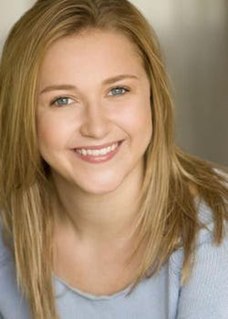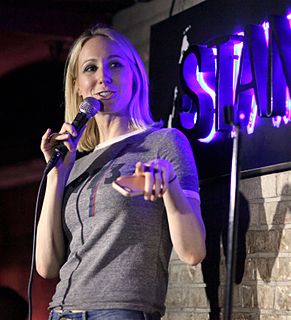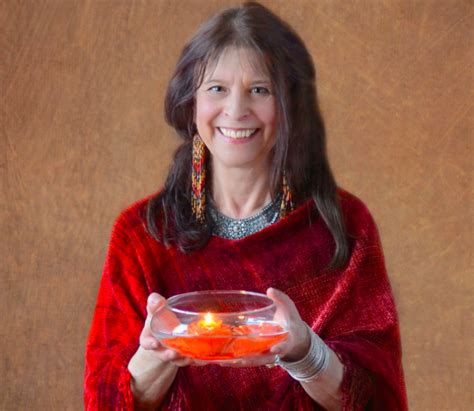A Quote by Shirley Geok-lin Lim
[Irony] has everything to do with what Tillie Olsen so powerfully imagined in her short story, "As I Stand Here Ironing" and elaborates on polemically in her 1978 book, Silences, in a chapter first delivered as a talk in 1967. As Olsen clearly saw it for women, my not being a writer was a material consequence of my being a woman - a wife, mother, housewife, and a certain kind of feminist teacher - attentive, one-on-one, face-to-face, nurturing, the kind who receives high ESCI evaluation scores from undergraduates and graduate students.
Quote Topics
Attentive
Being
Being A Woman
Book
Certain
Chapter
Clearly
Consequence
Delivered
Evaluation
Everything
Face
Face-To-Face
Feminist
First
Graduate
Graduate Students
Her
High
Housewife
Imagined
Ironing
Irony
Kind
Material
Mother
Nurturing
Saw
Scores
Short
Short Story
Stand
Story
Students
Talk
Teacher
Wife
Woman
Women
Writer
Related Quotes
She moved from being a young woman into having the angular look of a queen, someone who has made her face with her desire to be a certain kind of person. He still likes that about her. Her smartness, the fact that she did not inherit that look or that beauty, but it was something searched for and that it will always reflect a present stage of her character.
We think of a feminist as someone a woman becomes in reaction to personal indignities and social injustices. But the truth is, such inequities only awaken her to the feminist she has always fundamentally been - that is, a person who understands that her first responsibility is to her own humanity. That's why, for my money, the first known use of the word 'feminist' is still the best, appearing in an 1895 book review: a woman who 'has in her the capacity of fighting her way back to independence.
Even after the age of 50 it was impossible for me to see my mother as a human being. I felt she was a monster, and she had subtly been influencing my behavior and my thoughts and my dreams for so long that she was kind of a monster; she was a demon. And when I brought her back to life, I could feel that malevolent presence around me again, that woman who was totally incapable of giving nurturing to anybody, and, you know, her selfishness and her withdrawn indifference to everything but her own needs.
I. At Tea THE kettle descants in a cosy drone, And the young wife looks in her husband's face, And then in her guest's, and shows in her own Her sense that she fills an envied place; And the visiting lady is all abloom, And says there was never so sweet a room. And the happy young housewife does not know That the woman beside her was his first choice, Till the fates ordained it could not be so.... Betraying nothing in look or voice The guest sits smiling and sips her tea, And he throws her a stray glance yearningly.
Tereza's mother never stopped reminding her that being a mother meant sacrificing everything. Her words had the ring of truth, backed as they were by the experience of a woman who had lost everything because of her child. Tereza would listen and believe that being a mother was the highest value in life and that being a mother was a great sacrifice. If a mother was Sacrifice personified, then a daughter was Guilt, with no possibility of redress.
The good enough mother, owing to her deep empathy with her infant, reflects in her face his feelings; this is why he sees himselfin her face as if in a mirror and finds himself as he sees himself in her. The not good enough mother fails to reflect the infant's feelings in her face because she is too preoccupied with her own concerns, such as her worries over whether she is doing right by her child, her anxiety that she might fail him.
Duende I can't remember her name. It's not as though I've been in bed with that many women. The truth is I can't even remember her face. I kind of know how strong her thighs were, and her beauty. But what I won't forget is the way she tore open the barbecued chicken with her hands, and wiped the grease on her breasts.
Women's stories are as powerful, inspiring, and terrifying as the goddess herself. And in fact, these are the stories of the goddess. As women, we know her because we are her. Each woman, no matter how powerless she might feel, is a cell within her vast form, an embodiment of her essence, and each woman's story is a chapter in the biography of the sacred feminine.
Feminism has nothing at all to do with being 'feminine.' Feminine means accentuating the womanly attributes that make women deliciously different from men. The feminine woman enjoys her right to be a woman. She has a positive outlook on life. She knows she is a person with her own identity and that she can seek fulfillment in the career of her choice, including that of traditional wife and mother.






































